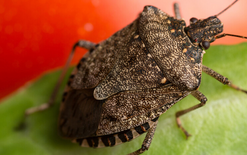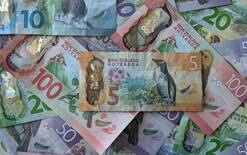Foreign brands improve share
Maserati, Volkswagen and other foreign automakers are seeing their best sales in years. During the year ending March 312014, 302,000 non-Japanese cars were sold, the most since 1997, according to the Japan Automobile Importers Association. Foreign automakers have long struggled to make inroads to Japan, which Ford’s chief executive Alan Mulally described as the ‘most closed market in the world’ last June. Even now, domestic models account for 90 per cent of sales volume. Foreign makers captured 8.8 per cent of non-kei car sales in the year ending March, 2014 their highest share since the importer group started keeping records in 1989. Mercedes-Benz sold a record 59,774 vehicles in Japan, up 40 per cent over a year earlier and overtaking Toyota’s Lexus to regain the position of best-selling premium brand in the country after four years. Maserati doubled deliveries in Japan to 714 vehicles, the biggest gain among luxury brands. Japan’s consumers snatched up an increasing numbers of cars, both foreign and domestic, in the seven months to 31 March – just ahead of Japan’s move to raise its consumption tax from five per cent to eight per cent. The government cushioned the effect of the increase by cutting its vehicle-purchase tax from five per cent to three per cent. In the first month of the higher tax, deliveries of imports were down 24 per cent compared with the previous year – compared with a 5.5 per cent drop in overall auto sales. The last time the tax was raised in April 1997 car sales dropped 15 per cent over the previous year and declined for 21 months in a row. Takeshi Miyao, a Tokyo-based auto-analyst at Carnorama Japan, expects foreign makers to extend their gains in the coming year, thanks to a spate of new imported models as well as expected improvements in the economy. Foreign cars accounted for some of the biggest advances in Japan’s market, slicing into Japanese makers’ share. Toyota’s market share for non-kei cars dropped to 46 per cent last year from 48 per cent four years ago. Nissan’s share dropped to 13 per cent from 16 per cent in the same period, according to Japan Automobile Dealers Association. Seven of the 10 best-selling non-kei cars in the past 12 months were compacts, including Toyota’s Aqua and Honda’s Fit, according to international sales statistics’ watchdog, IHS Automotive. No foreign models make it into the top 10 rankings. Volkswagen’s new Golf compact was the closest, ranking 27th with about 31,000 sold. Last year the Golf became the first foreign model named Japan’s Car of the Year, awarded by the nation’s automotive press. VW’s delivery of compact cars -- also including the Polo, Beetle and the subcompact Up – rose 25 per cent, to about 72,000 units, helping it stay the best-selling foreign maker for a 14th straight year. Premium brands such as BMW, Audi, and Mercedes-Benz are also introducing lower-priced compact models in Japan. Mercedes-Benz launched its compact A-Class model in January 2013 and sold 14,600 during the next 12 months, accounting for nearly one-quarter of overall sales for that make Volvo introduced the new V40 compact in February 2013. The smallest car in its line-up became Volvo’s best-selling car in Japan, with 10,300 units sold during the last fiscal year. The market share of foreign-branded cars dropped to 5.2 per cent in 2009, the lowest level since 1995, after the financial crisis suppressed demand, according to data from the importers’ association. Foreign makers’ share cracked the seven per cent level for the first time in 2011 and IHS analyst, Yoshiaki Kawano, predicted their market share will expand through to 2016 as they introduce new models.





